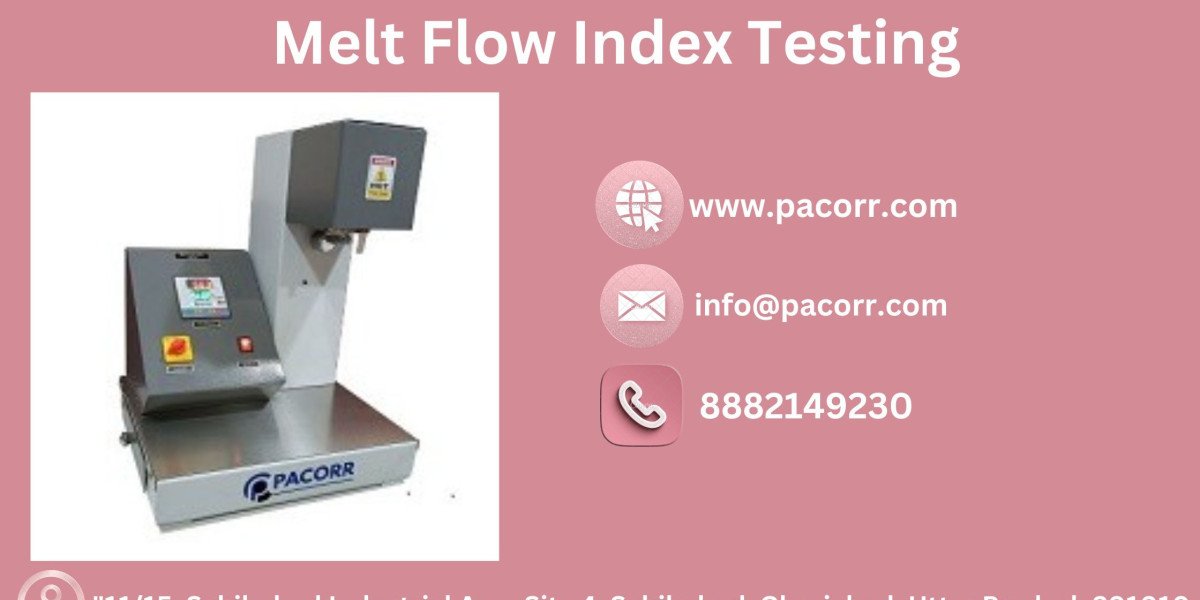Melt Flow Index Tester: Essential Tool for Polymer Quality Control
In the world of polymer manufacturing, understanding the material's flow characteristics is crucial for ensuring consistent quality and performance. The Melt Flow Index (MFI) Tester is an indispensable tool in this process, providing manufacturers with accurate data on the flow properties of thermoplastic materials. This article delves into the importance of the Melt Flow Index Tester, how it works, and why it is a must-have instrument for quality control in polymer industries.
What is a Melt Flow Index Tester?
A Melt Flow Index Tester Price measures the rate at which a thermoplastic material flows under a specified load and temperature. The result is expressed in grams per 10 minutes (g/10 min), known as the Melt Flow Rate (MFR). This value provides insights into the material's viscosity and its ability to process in various manufacturing methods such as extrusion, injection molding, and blow molding.
Importance of Melt Flow Index in Polymer Processing
The Melt Flow Index Testing is a critical parameter in polymer processing for several reasons:
- Consistency in Production: By regularly testing the MFI, manufacturers can ensure that the material they are using is consistent in terms of flow characteristics, leading to uniformity in the final product.
- Material Selection: Different applications require materials with specific flow properties. The MFI helps in selecting the right polymer for the job, whether it’s for creating thin films, thick-walled products, or complex shapes.
- Quality Control: The MFI is an essential quality control measure, ensuring that the materials meet industry standards and specifications. Deviations in MFI values can indicate issues with the material, such as contamination or degradation.
- Cost Efficiency: By understanding the MFI of a material, manufacturers can optimize processing conditions, reducing waste and energy consumption, leading to more cost-effective production.
How Does the Melt Flow Index Tester Work?
The Melt Flow Index Testing Price operates by extruding molten polymer through a die of a specific diameter under a controlled load and temperature. The key steps involved in the testing process are:
- Sample Preparation: A small amount of the polymer sample is preheated in the testing chamber to a specified temperature, ensuring it reaches a molten state.
- Application of Load: A weight is applied to the molten polymer, forcing it to flow through a die at the bottom of the chamber.
- Measurement: The extruded polymer is collected over a set period (usually 10 minutes), and its weight is measured. This weight is then used to calculate the MFI, typically reported as grams per 10 minutes.
- Data Analysis: The MFI value is compared against industry standards or previous results to determine if the material meets the required specifications.
Key Features of Pacorr's Melt Flow Index Tester
Pacorr’s Melt Flow Index Tester is designed with advanced features to ensure accurate and reliable testing:
- Precision Temperature Control: The tester maintains a consistent temperature throughout the test, ensuring accurate results every time.
- Automated Load Application: The tester applies the load precisely, eliminating human error and ensuring repeatability.
- User-Friendly Interface: The intuitive interface allows operators to set parameters easily, monitor the test process, and retrieve results with minimal effort.
- Robust Construction: Built to withstand rigorous testing environments, Pacorr’s MFI Tester is durable and reliable, ensuring long-term operation with minimal maintenance.
Applications of Melt Flow Index Tester
The Melt Flow Index Tester Price is widely used across various industries that deal with thermoplastic materials, including:
- Automotive: Ensuring the quality and performance of plastic components used in vehicles.
- Packaging: Maintaining consistency in the production of plastic films, containers, and other packaging materials.
- Electronics: Evaluating the flow properties of polymers used in electronic casings and components.
- Textiles: Testing the MFI of fibers used in synthetic textiles to ensure durability and performance.
Conclusion
The Melt Flow Index Tester is an essential tool for any manufacturer working with thermoplastic materials. It provides critical data that helps ensure product consistency, optimize material selection, and maintain high standards of quality control. With Pacorr’s Melt Flow Index Tester, manufacturers can rely on precise, reliable, and easy-to-use equipment that enhances their production processes and ensures the highest quality outcomes.







